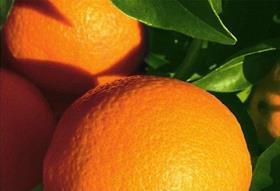
A crowdsourced AI project using thousands of smartphones has helped uncover the anti-cancer properties of various fruits and vegetables.
The project, led by researchers at Imperial College London, uses artificial intelligence to crunch huge volumes of data on a ‘cloud computing’ network of smartphones while they charge overnight.
Among the latest findings are insights into existing medicines for diabetes and infections and their potential to be repurposed to target cancer, as well as identifying hundreds of anti-cancer molecules in everyday foods such as oranges, cabbages and grapes.
The Imperial team, led by Dr Kirill Veselkov from the Department of Surgery & Cancer, has worked with theVodafone Foundation,who make theDreamLab app,to carry out the research.
By downloading the app and running it at night while their phones charge, members of the public can donate some of their phone’s unused processing power to crunch data and help to speed up cancer research while they sleep.
Thelatest findingsfrom the project, published in the journalScientific Reports, used the platform to analyse data on the molecular content of more than 8,000 everyday foods, identifying more than 110 cancer-beating molecules.
Many of these molecules are flavonoids, the huge class of compounds which help to give fruit and vegetables their colour.
They also found anti-cancer properties associated with a number of existing medicines, highlightingthe potential for the drugs to be ‘repurposed’ to target cancer. Chief among these are the anti-diabetic drugMetforminand anti-microbial Rosoxacin.
Veselkov said: “This is a ground-breaking moment for us. The next step is to use AI technologies to explore the impact that different combinations of drugs and food-based molecules could have on individuals.
“We have built a team of molecular gastronomists, computer scientists, biochemical/ microbiota scientists, sensory scientists, Michelin-star chefs, health economists and clinicians to advance the next phase of the project.'
The team at Imperial say that as the drugs have already been in therapeutic use, their approval for use as cancer therapies carries fewer risks, substantially lower costs and will involve shorter timescales than developing completely new drugs.
While these early-stage findings are encouraging, the researchers say further work is now needed to confirm any clinical properties of the molecules identified in the foods, as well as the effectiveness of repurposing the drugs.
They now hope to further explore different combinations of food molecules, using AI simulations to look at the potential impact they might have on cancer.



